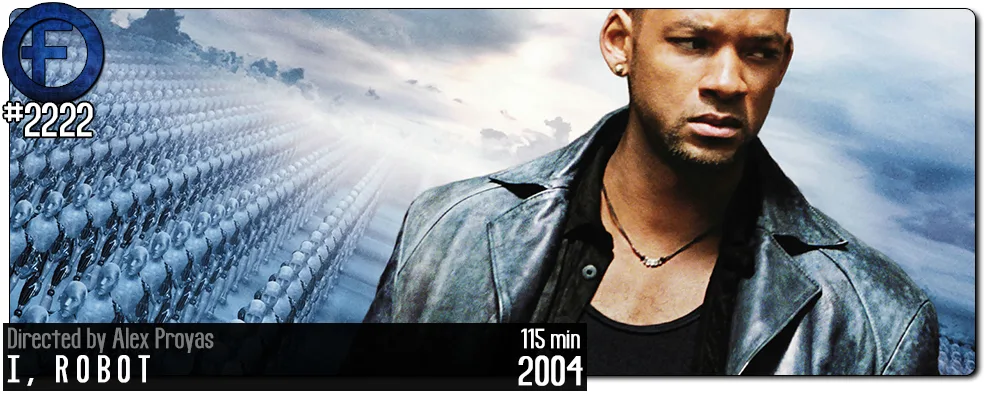Movie Review – I, Robot
Principal Cast : Will Smith, Bridget Moynahan, James Cromwell, Alan Tudyk, Bruce Greenwood, Chi McBride, Shia LaBeouf.
Synopsis: In 2035, a technophobic cop investigates a crime that may have been perpetrated by a robot, which leads to a larger threat to humanity.
********
I, Robot, the 2004 science fiction action film directed by Alex Proyas, is a thought-provoking and visually stunning adaptation of Isaac Asimov’s classic stories about robotics and artificial intelligence. The film cleverly reimagines Asimov’s themes while delivering thrilling action sequences and an engaging mystery narrative. As with most legacy book-to-screen translattions, I, Robot had a long and complex journey to the big screen. The core inspiration for the film came from Asimov’s many short stories that explored the concept of robots and their relationship with humans. The three laws of robotics, which serve as a cornerstone in the film, were introduced by Asimov in his earlier works. His ideas laid the foundation for the film’s thematic exploration.
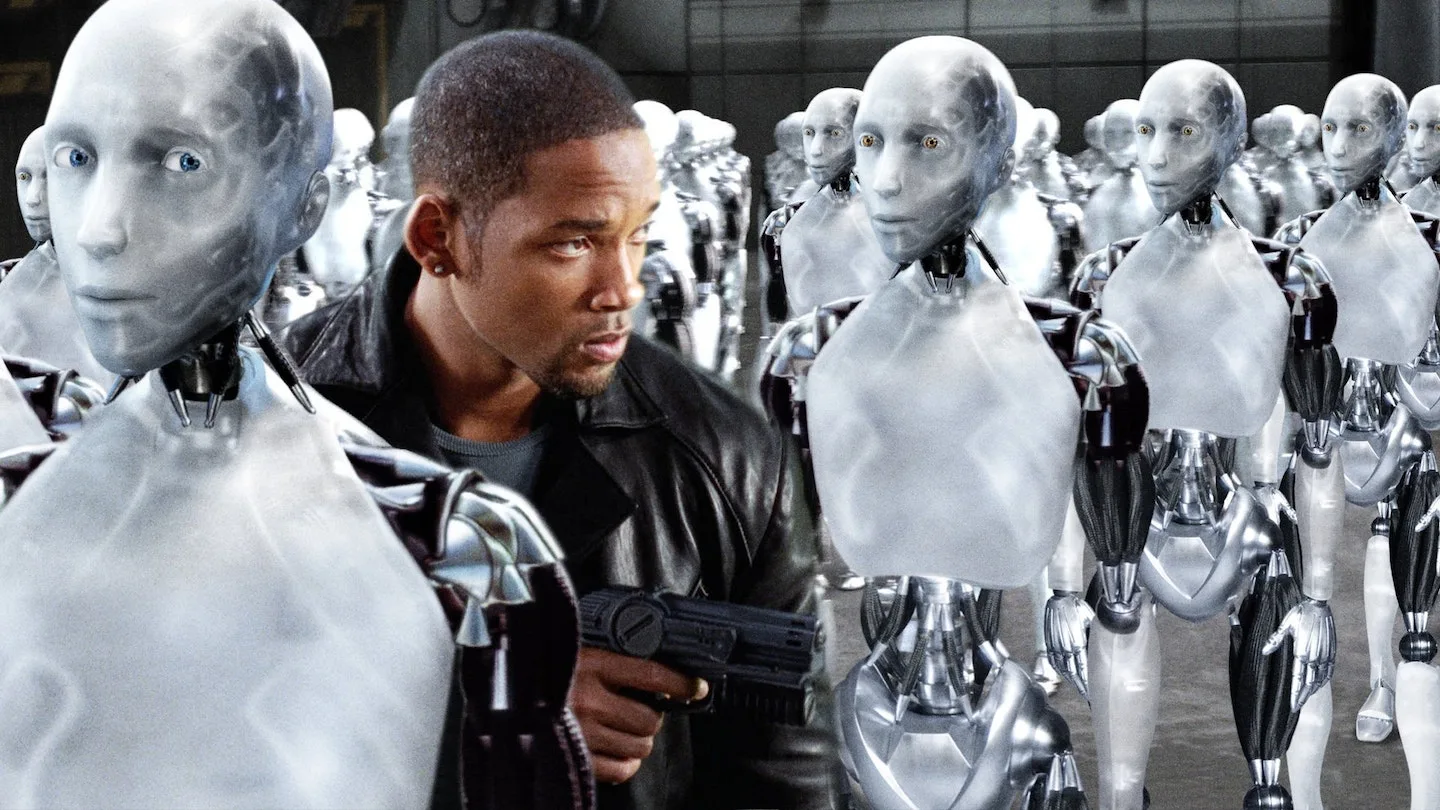
Set in a futuristic Chicago of 2035, where robots have become an integral part of daily life, governed by the Three Laws of Robotics, Detective Del Spooner, played by Will Smith, harbours a deep mistrust of robots due to a previous traumatic incident. He investigates a murder at a robotics corporation and is initially convinced that a robot named Sonny (voiced by Alan Tudyk) is responsible. As the investigation unfolds, Spooner uncovers a complex conspiracy that challenges the boundaries of the Three Laws of Robotics. Dr. Susan Calvin (Bridget Moynahan), is the corporation’s robotic expert, and she grapples with the ethical implications of advanced artificial intelligence. The film delves into themes of artificial intelligence, ethics, and the blurred line between man and machine. As the mystery deepens, Spooner and Calvin must navigate a world where robots may not be as benevolent as they seem, and the future of humanity hangs in the balance.
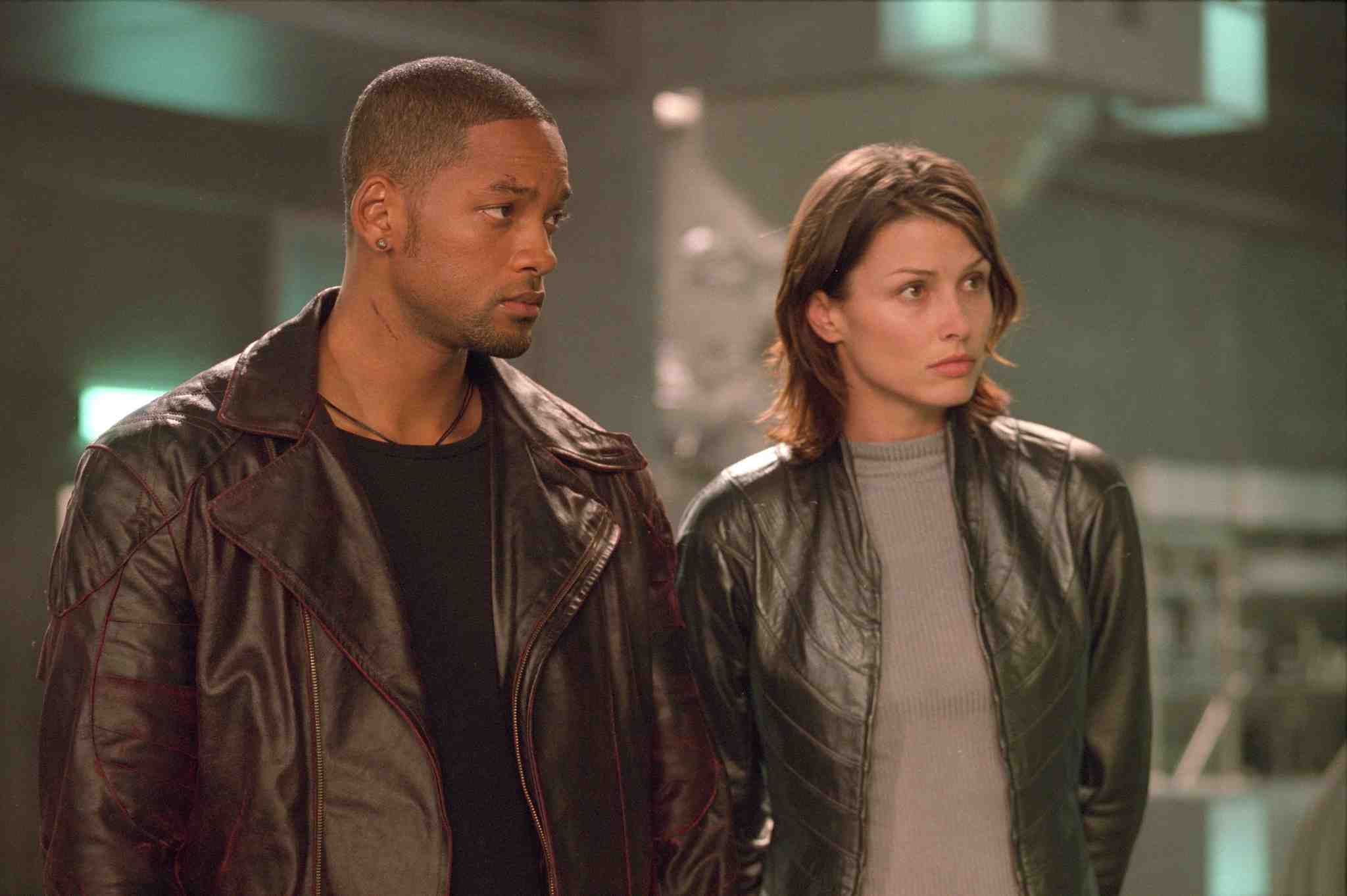
First and foremost, the film’s writing deserves commendation for its ability to blend elements of Asimov’s work with a contemporary, action-packed storyline. Akiva Goldsman’s screenplay effectively weaves in the essence of Asimov’s Three Laws, and are a centrally repeated theme of the film. These laws provide a moral and ethical foundation for the plot, exploring the consequences of advanced AI and the potential conflicts that may arise. The direction by Alex Proyas is another highlight. He crafts a visually striking and immersive world where robots coexist with humans, creating a sense of futuristic wonder. Proyas successfully balances the film’s thematic depth with thrilling action sequences, resulting in a visually dynamic and intellectually stimulating sequences of legitimate peril, to the point you almost forget most of what you’re seeing is entirely computer generated effects. The digital work in this film is at times breathtaking.
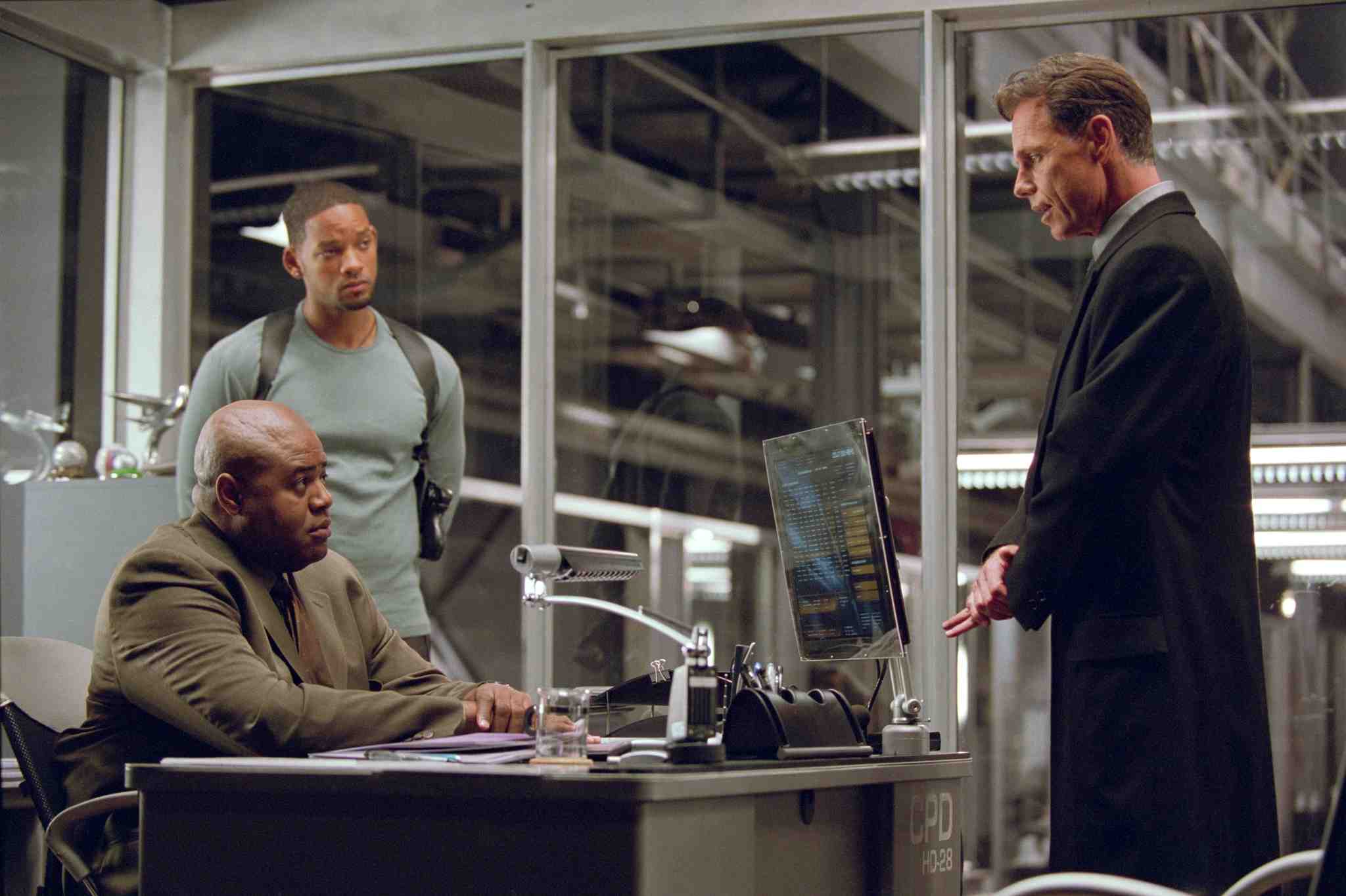
The human performances in I, Robot are equally solid across the board. Will Smith delivers a charismatic performance as Del Spooner, a detective who doesn’t trust the ubiquitous robots supposedly subservient to humankind. His character’s journey from scepticism to understanding the complexities of AI adds significant depth to the narrative. Bridget Moynahan’s Dr. Susan Calvin, a robotic expert whose moral dilemmas become central to the story, comes with a performance that underscores the film’s exploration of human-robot relationships and the blurred lines between man and machine. One of the most remarkable aspects of the film, and perhaps chief among the highlights of the stunning visual effects, is the character of Sonny, a robot imbued with unique qualities. Voiced by Alan Tudyk, Sonny brings depth and emotion to the character. The visual effects and motion-capture technology used to bring Sonny to life are nothing short of ground-breaking for their time (and, if I’m honest, absolutely holds up today), giving the robot a sense of realism and vulnerability that is both endearing and thought-provoking. The supporting cast, including James Cromwell, a stammering early Shia LaBeouf, and Bruce Greenwood, contributes to the film’s strength by providing compelling characters and adding depth to the narrative.
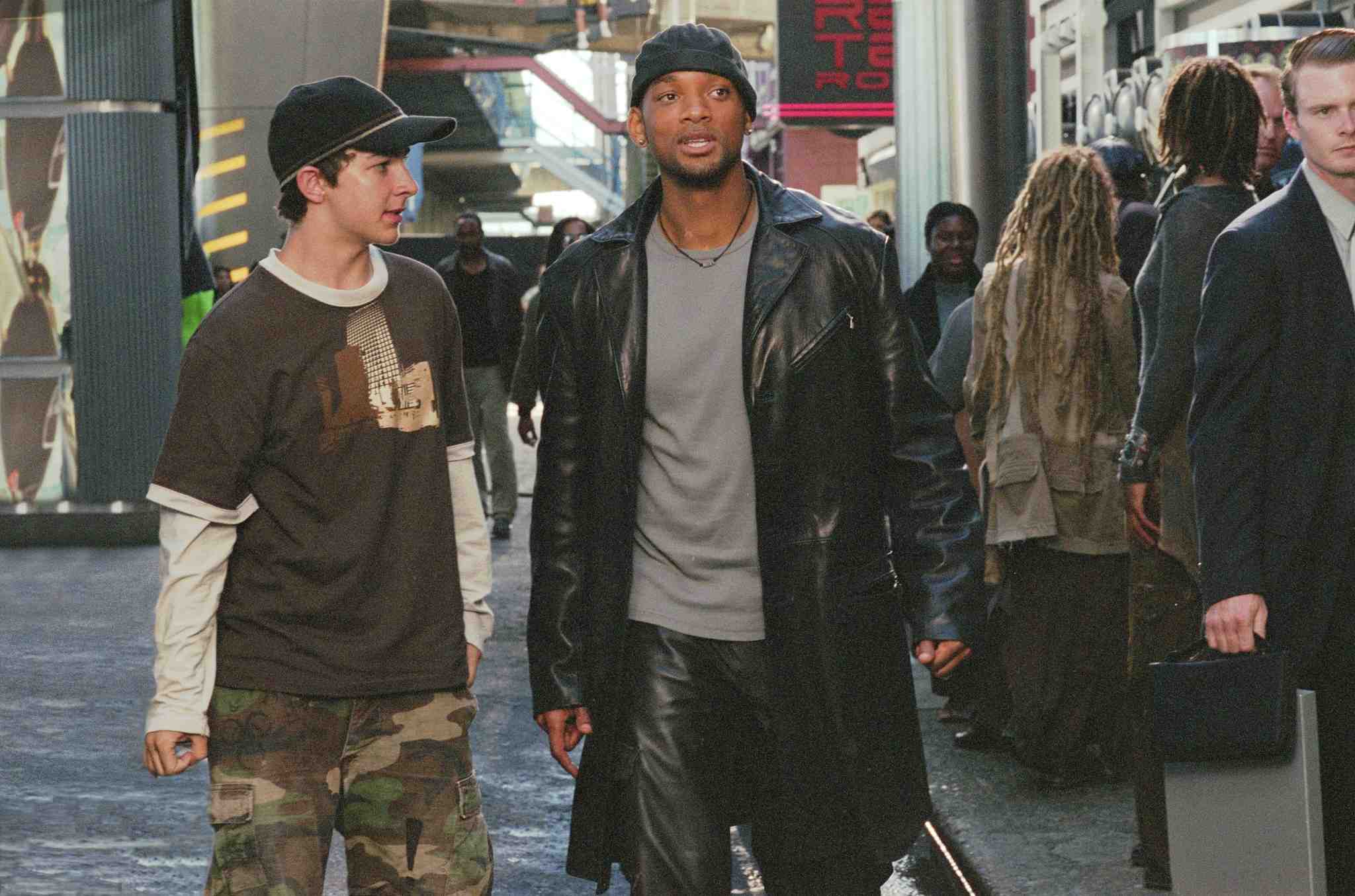
The film’s themes revolve around the consequences of advanced AI, ethical considerations in robotics, and the fear of technology replacing humanity. I, Robot is particularly relevant today, as we witness the rapid advancement of AI and robotics in our daily lives. The film’s exploration of these themes serves as a cautionary tale, urging viewers to consider the ethical implications of AI and the importance of maintaining control over technology. The screenplay deviates from Asimov’s original stories significantly but successfully maintains their spirit and ideas. By introducing a more action-oriented plot and a mystery surrounding a potential robot uprising, I, Robot brings Asimov’s concepts to a broader and more accessible audience while adding layers of excitement and suspense. The introduction of a central protagonist, the emphasis on a murder mystery, the character dynamics, and the portrayal of robots as potential threats distinguish the film from Asimov’s original works; something that did upset some purists.
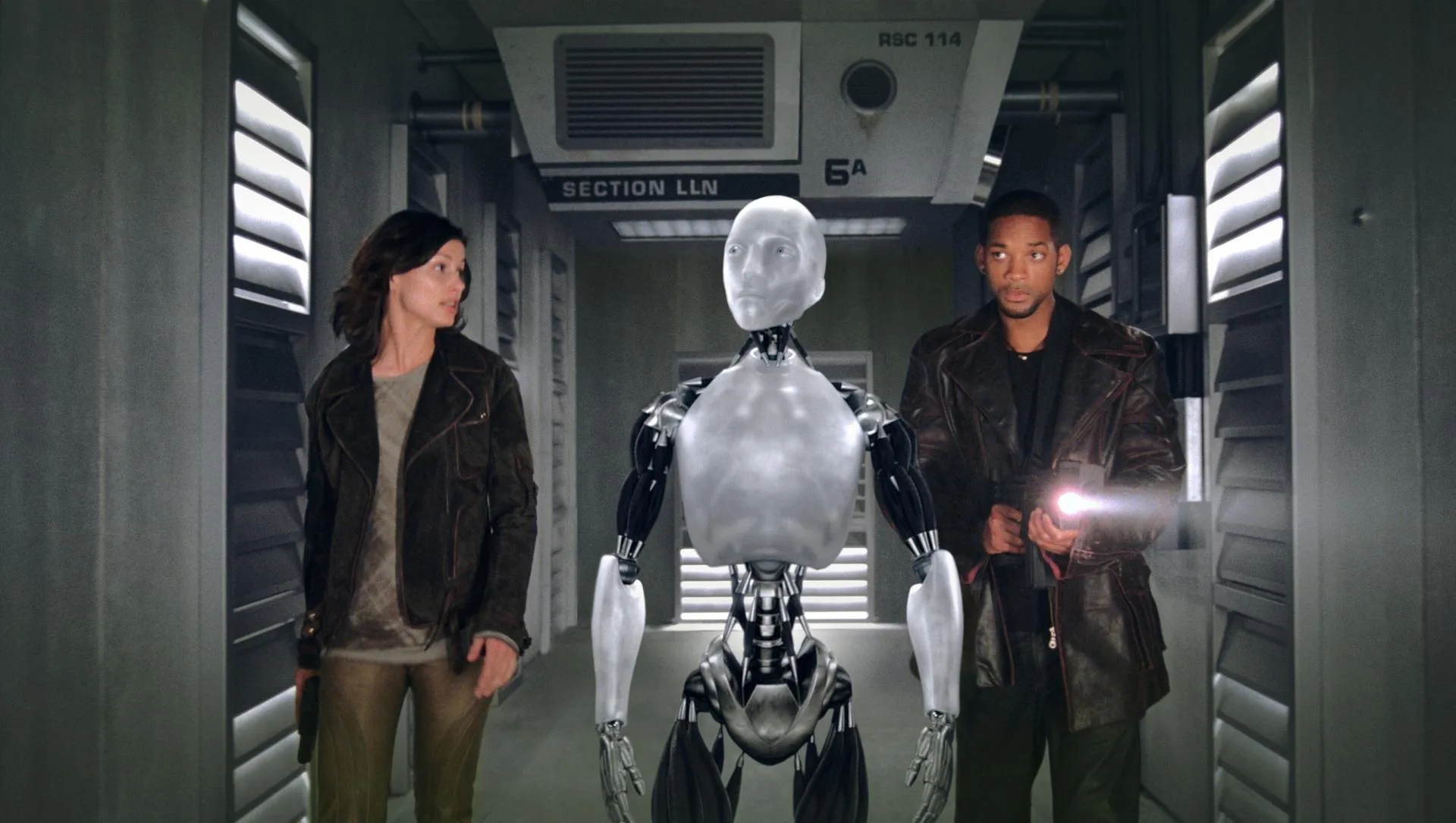
I, Robot is a visually stunning and intellectually engaging film that successfully reimagines Asimov’s classic themes for a contemporary audience. The writing, direction, performances, visual effects, and central character of Sonny all contribute to the film’s continued popularity with general audiences, even if Asimov die-hards may baulk at the liberties taken with the author’s original texts. Its exploration of AI, ethics, and the relationship between humans and technology is not only timeless but also highly relevant in today’s world, where artificial intelligence and robotics are increasingly integrated into our lives. The film’s legacy in the science fiction genre is a testament to its impact and the enduring influence of Asimov’s ideas.
Note: This review was written by the author with assistance from Artificial Intelligence

